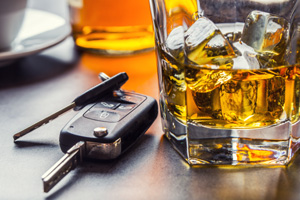
Under ideal circumstances, Pennsylvania’s roadway checkpoints would only take dangerous drivers off of the road. Unfortunately, representatives can often misinterpret someone’s driving and preemptively label them a drunk or drugged driver.
Drunk and drugged driving are two different crimes in the state of Pennsylvania. You need to know the difference between the two if you are accused of either. When you have applicable information on hand, you may have an easier time challenging the charges brought against you.
Pennsylvania’s Consequences for Drunk Driving
Prior to 2003, drivers in Pennsylvania were allowed to take to the road with a blood alcohol level, or BAC, of lower than 0.10%. As of 2003, however, the state’s Act 24 lowered its acceptable BAC to the national 0.08%.
Nowadays, the state assesses a driver’s alleged state of intoxication by placing the driver in one of three categories based on their BAC. According to the Pennsylvania DMV, drivers can be generally impaired, under high impairment, or severely impaired.
Generally Impaired Drivers
Generally impaired drivers have BACs of between 0.08 and 0.09%. These parties can face upgraded or second-degree misdemeanors if they are caught driving. Additional consequences can include up to six months of jail time and fines between $300 and $5,000.
The charges that a driver faces for operating a vehicle while generally impaired can grow more severe depending on the driver’s criminal history.
Highly Impaired Drivers
Drivers with BACs between 0.10 and 0.15% are categorized as highly impaired drivers. These drivers can face first-degree misdemeanors as well as fines of up to $10,000, depending on their criminal record.
Anyone accused of driving while highly intoxicated can also face jail time of up to six months. These drivers may also be required to attend driving courses or treatment for alcohol misuse.
Severely Impaired Drivers
Pennsylvania considers its drivers to be severely impaired if they have a BAC of over 0.16% while behind the wheel of a car. Criminal courts can assign these drivers up to five years of jail time in addition to fines of up to $10,000.
These drivers can also have their licenses suspended for up to 18 months. Even after a driver goes through those 18 months, they may be required by law to keep an ignition interlock on their car.
Pennsylvania’s Consequences for Drugged Driving
A driver can face compounded charges for drug possession, use, and intoxication if they are found to be under the influence of drugs behind the wheel of a car. Pennsylvania determines the severity of its DUI convictions based on the number of times the driver’s criminal history. Drivers facing their first or second drugged driving conviction can face ungraded and first-degree misdemeanors, respectively. These charges come along with fines of up to $10,000 and up to five years in prison.
Any driver convicted of driving while drugged three times or more can face a third-degree felony charge. The criminal consequences for these charges can include up to five years in prison, $10,000 in fines, and an 18-month license suspension.
Let Our Criminal Defense Attorneys Stand Up For You
You have the right to contest criminal charges brought against you if you are accused of driving while intoxicated. Whether you are facing charges for driving drunk or drugged, our team can assess a criminal case for the use of flimsy evidence or signs of bias.
Rubin, Glickman, Steinberg & Gifford, P.C. offers representation to any parties challenging DUI accusations in Pennsylvania’s criminal courts. If you are ready to meet with our team, you can contact us online or call us at (215) 822-7575.

Rubin, Glickman, Steinberg & Gifford P.C.
Pennsylvania Attorney's
September 5, 2022








